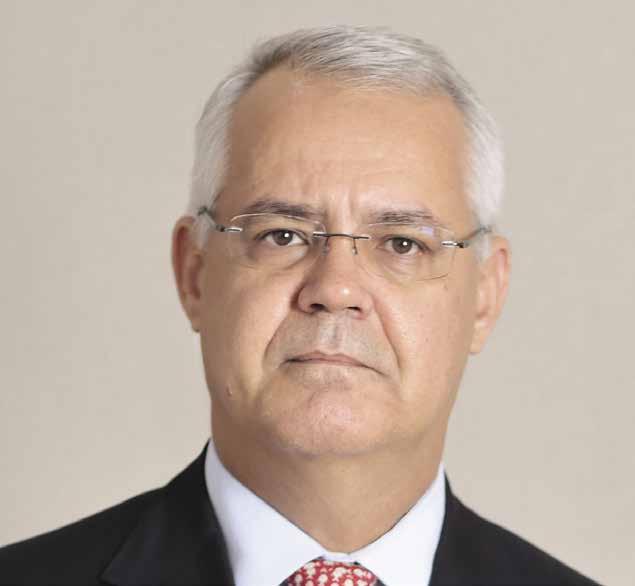DIREITO (VIRTUAL)
CATARINA DE MEDEIROS CARREIRO, ABREU ADVOGADOS
JAIME LINO NETO, ABREU ADVOGADOS
O 5G EM PORTUGAL 5G IN PORTUGAL
O
5G (a quinta geração de rede móvel) será um dos dinamizadores da implementação de novas tecnologias durante a próxima década, sendo frequentemente anunciadas as vantagens desta tecnologia disruptiva. Em particular, antecipa-se que, em comparação com o 4G, o 5G proporcione velocidades mais rápidas, ligações mais fiáveis e latências mais baixas (ou seja, menor atraso entre a ordem e a ação), resultando na transação de um maior volume de dados e na capacidade de servir de forma flexível segmentos com grande necessidade de largura de banda. Estes elementos dinamizadores do 5G poderão vir a revolucionar a maneira como atualmente vivemos, tornando as experiências digitais cada vez mais imersivas, hiperpersonalizadas e em tempo real, acentuando a transição entre um mundo ‘offline’ (analógico) e um mundo ‘online’ (digital). Em Portugal, a Autoridade Nacional de Comunicações (“ANACOM”) determinou que, para a atribuição dos direitos de utilização de frequências do 5G às operadoras de telecomunicações (nas faixas dos 700 MHz, 900 MHz, 2,1 GHz, 2,6 GHz e 3,6 GHz), seria adequado um processo de seleção por concorrência, mais concretamente um leilão. Neste contexto, a ANACOM aprovou o Regulamento que estabelece as regras de funcionamento 114
5
G (the fifth-generation mobile network) will be one of the drivers of the implementation of new technologies during the next decade and the advantages of this disruptive technology are announced every day. It is anticipated in particular that, compared to 4G, 5G will provide faster speed, more reliable connections and lower latencies (i.e. less delay between order and action), thus enabling more flexibility as to the transaction of a higher volume of data and the ability to cater for segments with high bandwidth requirements. These dynamic elements of 5G could revolutionize the way we currently live, making digital experiences increasingly immersive, hyper-personalised and in real-time, increasing the transition between the offline (analogue) world and an online (digital) world. In Portugal, the National Communications Authority (“ANACOM”) established that, regarding the allocation of rights of use of 5G frequencies to telecommunications operators (in 700 MHz, 900 MHz, 2.1 GHz, 2.6 GHz bands and 3.6 GHz), a competitive selection process, more specifically an auction, would be more appropriate. ANACOM thus approved the Regulation that establishes the auction’s operating rules, aiming at promoting greater competition in the market and offering more advantages for the respective users, (Texto escrito ao abrigo do novo acordo ortográfico)



















